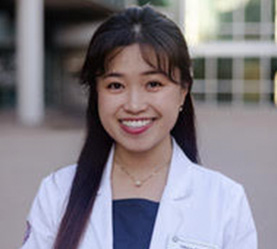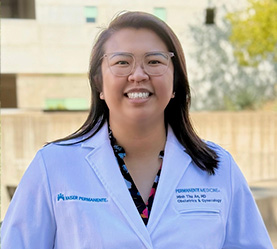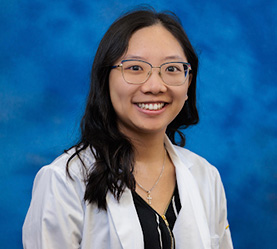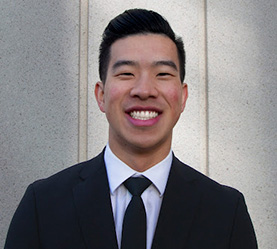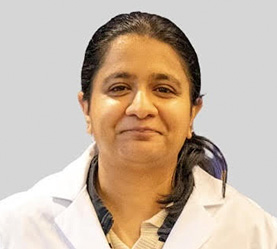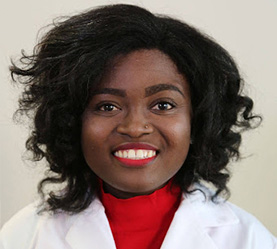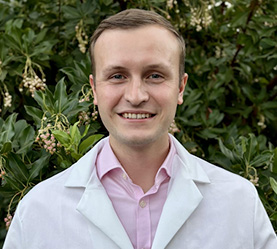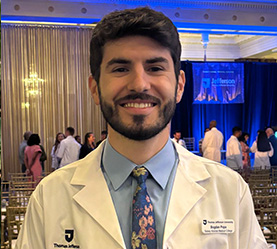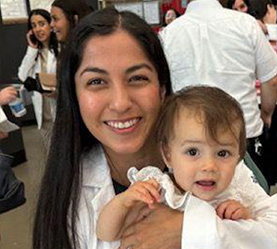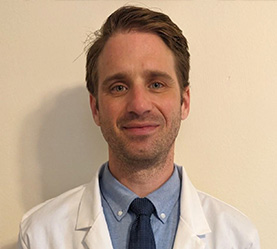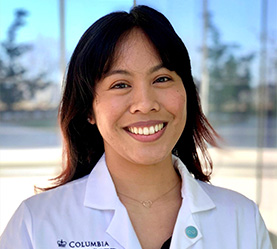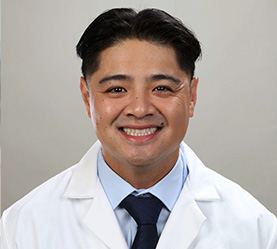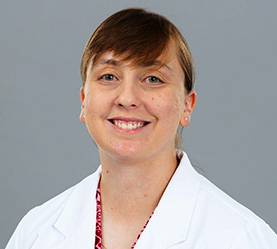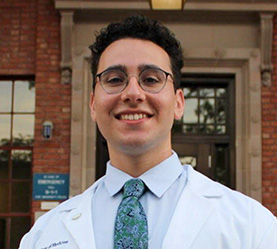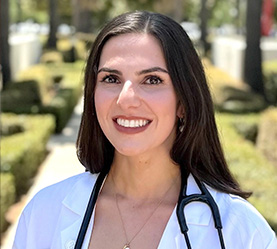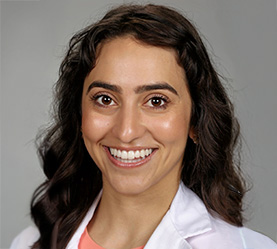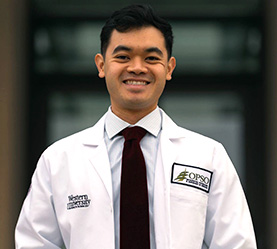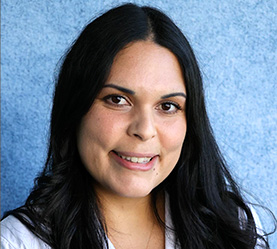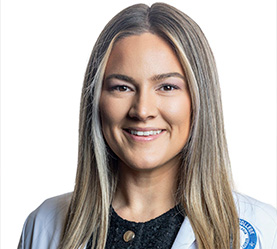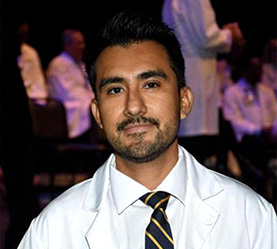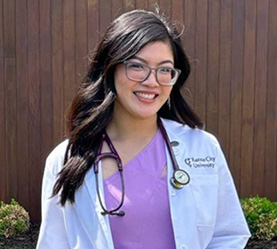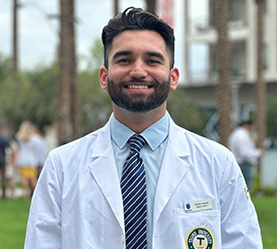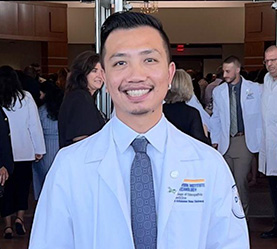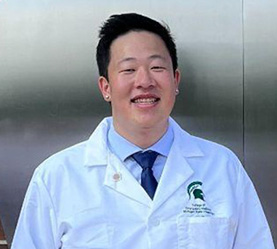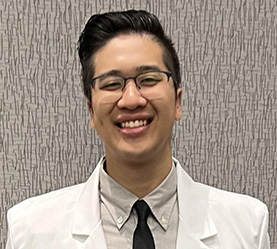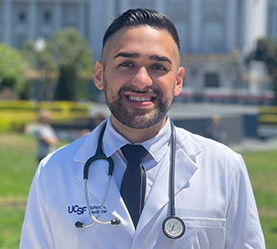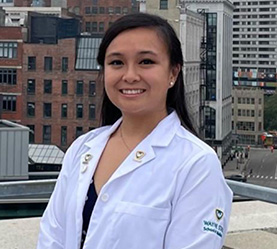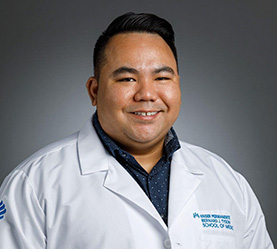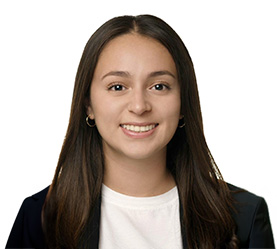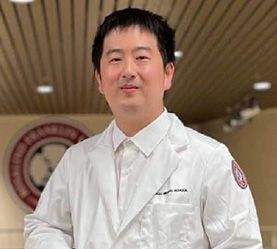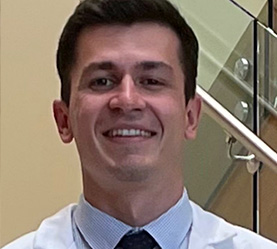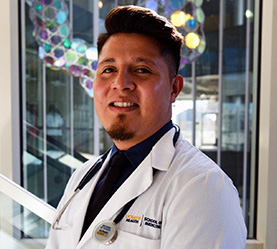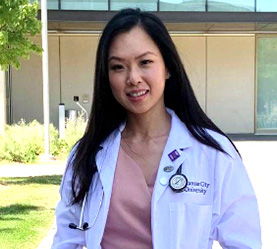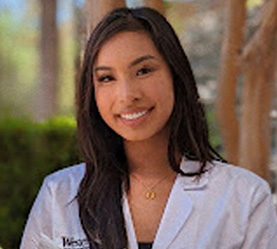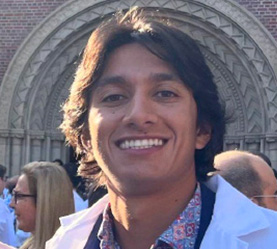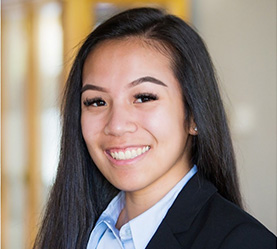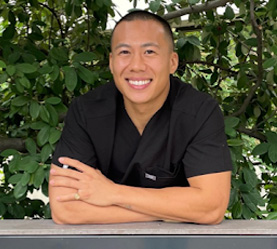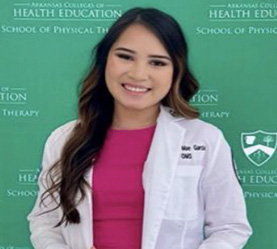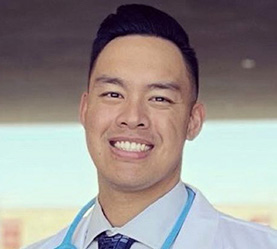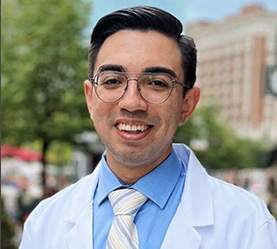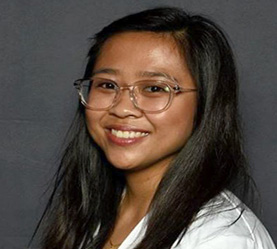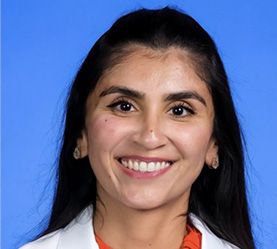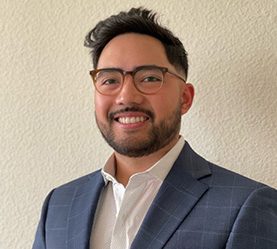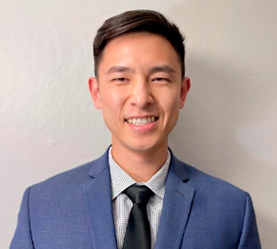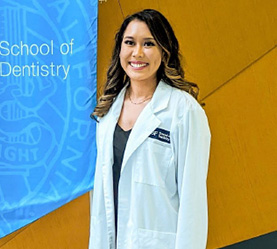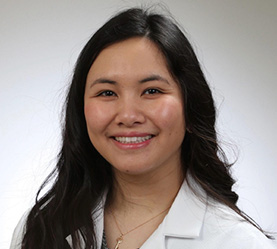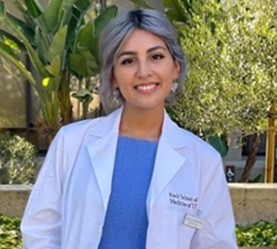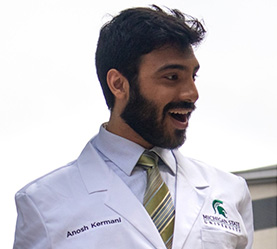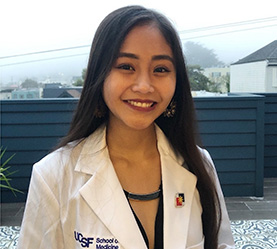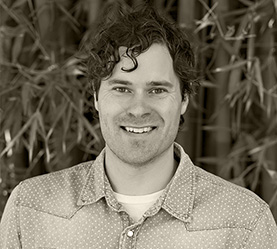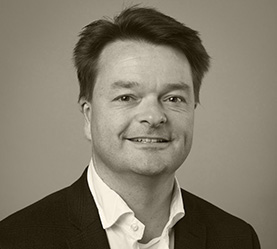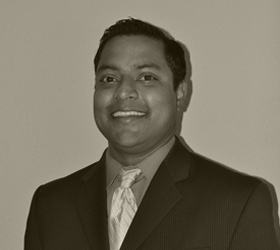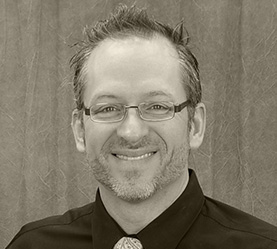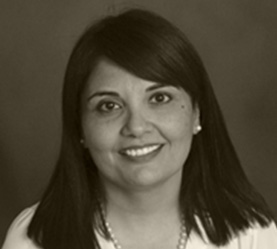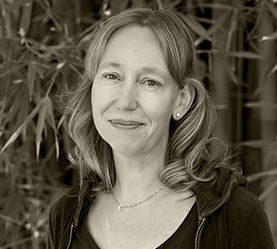A Proven Pathway to Your Future in Healthcare
The Pre-Professional Health Academic Program (PHAP) at Cal State East Bay is a distinguished post-baccalaureate program with over 30 years of excellence in preparing students for successful admission to health professional schools.
Whether you are a career changer or seeking to strengthen your academic record, PHAP offers a comprehensive pathway that supports every facet of your journey—including academic enhancement, test preparation, and application readiness.
Designed especially for college graduates who may not have received the guidance or resources they needed during their undergraduate years, PHAP provides a meaningful second opportunity to pursue your passion for a career in healthcare.
Program Highlights
Serves all Health Professions
Supportive cohort classroom-learning environment; our small-size classes (25 max) are exclusive to PHAP students
Individualized advising, mentoring, and tutoring
In-House Counseling/Learning Specialist
Workshops in Learning Strategies, Personal Statement Writing, and Application Preparation
The Princeton Review® MCAT prep course at a highly subsidized rate
Committee letter of recommendation or letter packet
(minimum requirements must be met)
Tuition reduction merit-based award
Numerous clubs/Extracurriculars
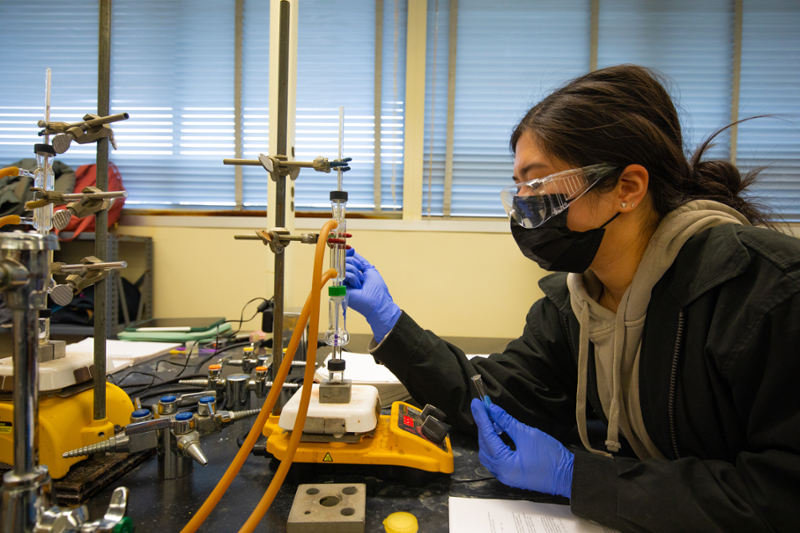
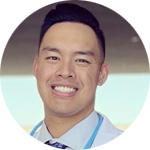
PHAP helped me improve my academic resume; allowed me to balance two clinical-oriented jobs, volunteering, and extracurricular activities; and guided me through the rigorous application process. I wouldn’t be where I am today without the lasting connections and friendships I’ve made in this program!
CHSU College of Osteopathic Medicine, 2026
With a PHAP Certificate from an accredited university, you’ll quickly be on your way to an exciting and rewarding career in the health profession.
Become an Asset to Your Community
Do you desire a career that is challenging, engaging, and satisfying? Cal State East Bay’s Pre-Professional Health Academic Program is strategically designed to provide the competitive advantage needed to enter a health professional school and launch a rewarding career in medicine, optometry, dentistry, veterinary medicine, physical therapy, and other healthcare fields.

Launch a rewarding career in a variety of healthcare fields.
Occupational and Medical College Trends
Physicians and surgeons are among the highest of all occupations, with a median wage equal to or greater than $239,200 per year.
—U.S. Bureau of Labor Statistics
Performing well in a premedical post-baccalaureate program demonstrates successful completion of premedical requirements, as well as a continued commitment to your goal of a career in medicine.
—Association of American Medical Colleges
Employment of healthcare occupations is projected to grow much faster than the average for all occupations from 2023 to 2033, adding about 1.9 million new jobs each year.
—U.S. Bureau of Labor Statistics
Develop Your Competitive Edge
Health professional schools today are admitting more post-baccalaureate students than ever before. As a student in Cal State East Bay’s PHAP, you’ll receive the intensive training and preparation needed to succeed in those schools and foster a career in the health profession of your choice.
Join the growing list of Cal State East Bay graduates who are admitted into medical schools across the nation each year by showing promise in scholarship, competitive entrance test scores, quality experience in health/medical settings, and excellent personal characteristics that include maturity, leadership, self-discipline, compassion, and empathy.
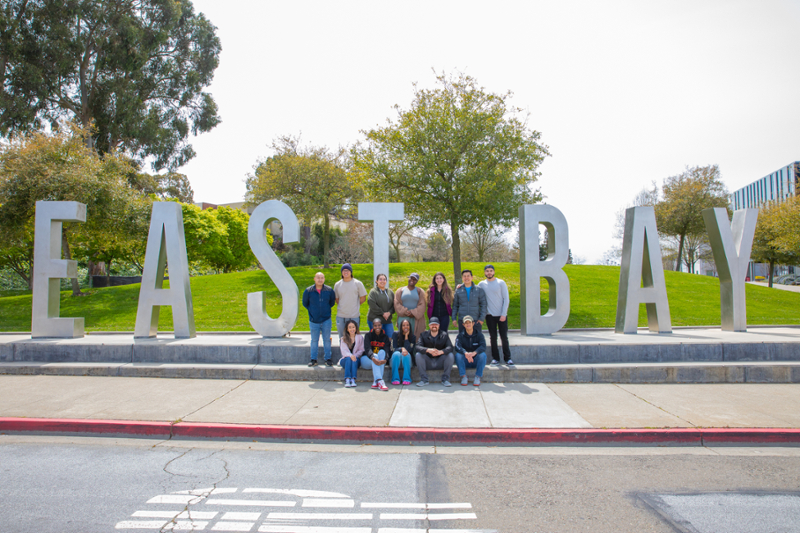
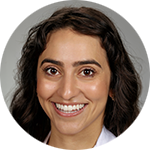
The PHAP program transformed my approach to learning and revealed the importance of tailoring study strategies across different subjects. PHAP provided a supportive environment where I overcame my fear of asking questions, actively engaging in office hours and lectures, and forming study groups.
UC Davis School of Medicine, Class of 2027
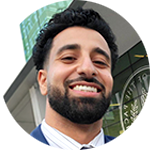
This unique program has so much to offer if you are willing to explore it all. It has helped me learn better study habits, be more efficient with time management, and network with many professionals that have been a huge part of my success. I am thankful for the wonderful staff and would highly recommend PHAP to anyone that is thinking of applying to a professional program.
UOP School of Dentistry, Class of 2026

Rigorous PHAP classes expanded my medical knowledge and refined my study habits. I am thankful for the invaluable guidance provided by PHAP professors/advisors, ensuring I stay on course to achieve my goal of entering medical school.
Charles R. Drew COM, Class of 2027
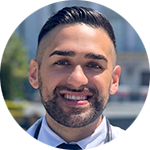
As a first generation college student from an underserved/underrepresented community, it was often challenging to envision myself in a position to become a medical professional. Aside from practicing new study strategies, I was able to surround myself with a very supportive community of students and staff who shared my interest in the medical professions.
UCSF School of Medicine, Class of 2027
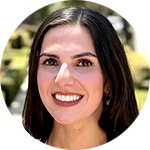
Not only was I given an opportunity to grow academically, PHAP provided me with the tools to grow as a leader and allowed me to volunteer with the community. Being a PHAPer allowed me to connect with my professors in a small class setting and build my confidence to pursue my dream, all the while surrounded with like-minded individuals!
Western University COM, Class of 2028
Program Objectives
To adequately prepare post-bacc students to be highly competitive in coursework, entrance test score, application process, and humanistic experiences for application to biomedical professional programs.
Alumni
Our alumni are making a difference in healthcare across the country and beyond, and we take pride in their achievements and the lasting impact they make in their communities. Click on the alumni photo to explore their stories and testimonials to see how PHAP helped them turn ambition into achievement.
Program Curriculum
Cal State East Bay’s Pre-Professional Health Academic Program is a structured post-baccalaureate program designed for both science and non-science majors. It offers a goal-driven curriculum led by experienced advisors and faculty, providing the guidance and support needed for your professional journey.
Designed for full-time students, the program encourages enrollment in at least three to four courses per semester. However, there are no restrictions on the duration of participation or the number of units you can take each term. With classes held at the Hayward Campus, including convenient evening options, you can easily integrate coursework into your busy schedule.
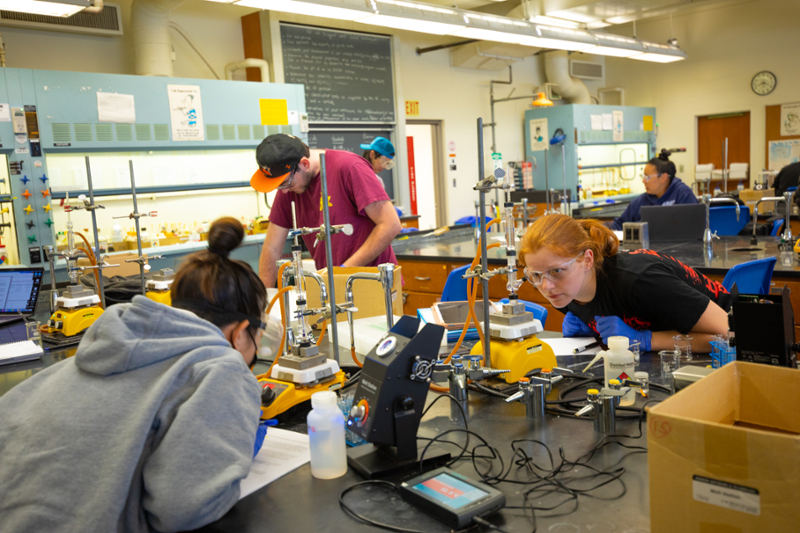
Choose from Two Tracks Designed to Meet Your Goals
The program includes two different tracks, depending on your academic background:
Approximately 2 full years, or 4 semesters. Choose this track if you have a non-science degree.
Approximately 1 full year, or 2 semesters. Choose this track if you already hold a biological sciences or biochemistry degree.
Track I: Career Changer (CC)*
Requirements:
- Completion of all foundational science courses required in your career choice (usually biology I/II, general chemistry I/II, organic chemistry I/II, physics I/II, and calculus I), plus a selection of 4-5 upper-level biology/biochemistry recommended/electives, plus 2 seminars (2 units each) (starts Fall semester only)
- Must have successfully completed College Algebra and Trigonometry prior to entering the program
Typically students in the Career Changer track complete the following:
- Foundation Science Courses ~38 units
- Recommended/Elective Upper Division Courses ~18-24 units
* If you have completed some, but not all of the foundation sciences, you will not be required to retake them unless you did not pass with C and above grade.
Foundation Science Courses (~38 units):
| Biology Courses |
|---|
| BIOL 140A - Cell and Molecular Biology (5 units) |
| BIOL 140B - Organismal Biology (5 units) |
| Physics Courses |
|---|
| PHYS 125 - Principles of Physics I (4 units) |
| PHYS 126 - Principles of Physics II (4 units) |
| Chemistry Courses |
|---|
| CHEM 111 - General Chemistry I (5 units) |
| CHEM 112 - General Chemistry II (5 units) |
| CHEM 331 - Organic Chemistry I (5 units) |
| CHEM 332 - Organic Chemistry II (5 units) |
| Mathematics Courses |
|---|
| MATH 130 - Calculus I (4 units) |
| Psychology Courses |
|---|
| PSYC 100 - General Psychology (3 units) |
| PSYC 330 - Cognitive Psychology (4 units) |
| Statistics Courses |
|---|
| STAT 303A - Biostatistics for Health Sciences (3 units) |
| Health Science Courses |
|---|
| HSC 130 - Health Humanities (3 units) |
| HSC 405 – Toxicology (3 units) |
| Seminar Courses |
|---|
| BIOL 408 – Biomedical Sciences Seminar (2 units) |
Elective Lower and Upper Division Courses (~18-24 units):
| Select from the following: |
|---|
| BIOL 270 - Human Anatomy and Physiology I (4 units) |
| BIOL 271 - Human Anatomy and Physiology II (4 units) |
| BIOL 310 - Genetic Analysis I (4 units) |
| BIOL 330 - General Microbiology (5 units) |
| BIOL 410 - Genetic Analysis II (3 units) |
| BIOL 426 - Advanced Molecular and Cell Biology (3 units) |
| BIOL 434 - Molecular Microbiology (3 units) |
| BIOL 440 - Molecular Virology (3 units) |
| BIOL 441 - Parasitology (3 units) |
| BIOL 442 - Epidemiology (3 units) |
| BIOL 444 - Medical Entomology (3 units) |
| BIOL 445 - Immunology (3 units) |
| BIOL 470 - Animal Senses (4 units) |
| BIOL 471 - Neurobiology (3 units) |
| BIOL 473 - Comparative Physiology (3 units) |
| BIOL 474 - Biomedical Physiology (3 units) |
| BIOL 476 - General Endocrinology (3 units) |
| BIOL 488 - Environmental Physiology (3 units) |
| CHEM 441 - Biochemistry I (4 units) |
| CHEM 442 - Biochemistry II (4 units) |
| CHEM 445 - Protein Structure (3 units) |
| CHEM 446 - Nucleic Acid Chemistry (3 units) |
| CHEM 447 - Major Organ Biochemistry (3 units) |
| CHEM 490 - Independent Study (1-4 units) |
| HSC 315 - Public Health (3 units) |
| HSC 355 - Bioethics (3 units) |
| MATH 131 - Calculus II (4 units) |
Track II: Academic Enhancer (AE)*
Requirement: The number of units an academic enhancer student needs will depend on their undergraduate coursework and academic performance, in consultation with a faculty academic advisor. Typically, AE students complete a selection of ~ 9-12 upper-level elective courses (~30-36 units), plus 2 seminars (2 units each) (starts Fall, Spring, and Summer term)
*If you did not pass any required foundation course with C and above grade, you may be required to retake it.
Elective Lower and Upper Division Courses (34-40 units):
| Biology Courses |
|---|
| BIOL 270 - Human Anatomy and Physiology I (4 units) |
| BIOL 271 - Human Anatomy and Physiology II (4 units) |
| BIOL 310 - Genetic Analysis I (4 units) |
| BIOL 330 - General Microbiology (5 units) |
| BIOL 410 - Genetic Analysis II (3 units) |
| BIOL 424 Bioinformatics (3) |
| BIOL 426 - Advanced Molecular and Cell Biology (3 units) |
| BIOL 430 Microbial Physiology and Metabolism (3) |
| BIOL 432 Microbe-Host Interactions (3) |
| BIOL 434 - Molecular Microbiology (3 units) |
| BIOL 440 - Molecular Virology (3 units) |
| BIOL 441 - Parasitology (3 units) |
| BIOL 442 - Epidemiology (3 units) |
| BIOL 444 - Medical Entomology (3 units) |
| BIOL 445 - Immunology (3 units) |
| BIOL 470 - Animal Senses (4 units) |
| BIOL 471 - Neurobiology (3 units) |
| BIOL 473 - Comparative Physiology (3 units) |
| BIOL 474 - Biomedical Physiology (3 units) |
| BIOL 476 - General Endocrinology (3 units) |
| BIOL 488 - Environmental Physiology (3 units) |
| Physics Courses |
|---|
| BIOL 125A – Principles of Physics I (1 unit) |
| BIOL 126A – Principles of Physics II (1 unit) |
| PHYS 303 - Biophysics (3 units) |
| Chemistry Courses |
|---|
| CHEM 111 - General Chemistry I (5 units) |
| CHEM 112 - General Chemistry II (5 units) |
| CHEM 331 - Organic Chemistry I (5 units) |
| CHEM 332 - Organic Chemistry II (5 units) |
| CHEM 441 - Biochemistry I (4 units) |
| CHEM 442 - Biochemistry II (4 units) |
| CHEM 445 - Protein Structure (3 units) |
| CHEM 446 - Nucleic Acid Chemistry (3 units) |
| CHEM 447 - Major Organ Biochemistry (3 units) |
| Mathematics Courses |
|---|
| MATH 130 - Calculus I (4 units) |
| MATH 131 - Calculus II (4 units) |
| Psychology Courses |
|---|
| PSYC 100 - General Psychology (3 units) |
| PSYC 330 - Cognitive Psychology (4 units) |
| Statistics Courses |
|---|
| STAT 303A - Biostatistics for Health Sciences (3 units) |
| English Courses |
|---|
| ENGL 100 College Writing: Stretch I (3) |
| ENGL 101 College Writing: Stretch II (3) |
| ENGL 200 College Writing II (3) |
| Health Science Courses |
|---|
| HSC 130 - Health Humanities (3 units) |
| HSC 315 - Public Health (3 units) |
| HSC 355 - Bioethics (3 units) |
| HSC 405 - Toxicology (3 units) |
| Seminar Courses |
|---|
| BIOL 408 – Biomedical Sciences Seminar (2 units) |
| Independent Study |
|---|
| BIOL 490 – Independent Study (1-4 units) |
| CHEM 490 Independent Study (1-4 units) |
Please note: Students with biomedical undergraduate degrees (like biology, biochemistry, etc.) must complete a minimum of 10 upper division courses (or one full year) as post-baccalaureates to qualify for certification.
Featured Faculty
Additional Faculty:
Dr. Semere Bairu
Dr. Hardeep Kaur
Dr. Helen Kwan
Dr. Faezeh Manshadi
Dr. Taban Seif
Dr. Hasan Tahir
Admission Requirements
To qualify for entry into the Pre-Professional Health Academic Program at Cal State East Bay, you must hold a baccalaureate degree with an overall minimum GPA of 2.5 (average of accepted GPA is 3.0).
How to Apply
Once you are ready to apply to the program, you will fill out an online application and submit all transcripts directly from your previous college.
Please note that applications for Career Changers (Track I) are ONLY processed for classes beginning in the fall term. Academic Enhancers (Track II) applications are accepted for classes beginning fall, spring, summer terms.
Due to the growth in the pool of prospective students applying to the program, you are encouraged to apply early. Like biomedical schools, the program follows a rolling admissions format, which leads to students with higher GPAs being accepted further along the application cycle. In short, the earlier you apply, the higher your chances of being accepted.
Program Cost
- $575 per unit
- Career Changer Track (~56–62 units): ~$32,200–$35,650
- Academic Enhancer Track (~30–40 units): ~$17,250–$23,000
Once a Pioneer, Always a Pioneer!
Included in your investment: ongoing, unlimited support—even after completing the PHAP program—such as advising, personal statement reviews, interview preparation, application guidance, and more.
Admission Deadlines
Track I: Career Changer Track
| Term | Application Filing Period | Transcripts & Other Docs Due By |
|---|---|---|
| Fall 2026 | 10/1/25-6/1/26 | 7/1/26 |
Track II: Academic Enhancer Track
| Term | Application Filing Period | Transcripts & Other Docs Due By |
|---|---|---|
| Spring 2026 | 8/1/25-11/15/25 | 11/30/25 |
| Summer 2026 | 2/1/26-4/1/26 | 5/1/26 |
| Fall 2026 | 10/1/25-6/1/26 | 7/1/26 |
International Student Applicants
If you are an international student/applicant you must demonstrate proficiency in English with one of the following:
- A transcript showing graduation with a bachelor's degree or higher from a U.S. college or university, or an international college or university where we accept English as the principal language of instruction. The list of countries we accept are listed in the following link English Proficiency Requirement.
- A TOEFL (Test of English as a Foreign Language) score of 80 ibt (internet based test) or above.
- An overall test score from IELTS (International English Language Testing System) exam of 6.5 or above.
If you are an international student and have completed a bachelor’s degree in a science or non-science field, you are invited to apply to the program.
To facilitate processing of international applications, you must:
- Complete an online application through Cal State Apply.
- Submit unofficial transcripts and a degree certificate from all foreign institutions attended from your undergraduate degree and higher, if applicable and official transcripts from U.S institutions and submit proof of English proficiency.
- If you are admitted, you will be required to submit all official documents, transcripts, degree certificates and test scores.
- If you are an F-1 student, a message will be sent to your Horizon email account if you are admitted in order to further gather information to issue your I-20.
At Cal State East Bay, we pride ourselves on putting students first, from the moment you inquire until you graduate. We hope you've found answers to your questions in this support center, but if not, please get in touch.
